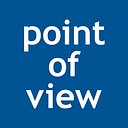Allyship — a Step Closer to Unlocking Diversity & Inclusion - in conversation with Susan Leggett-Johnson
An ally is someone who works to advance the culture of inclusion through positive and intentional efforts. The concept of allyship has no boundaries — men can be allies to women, cis people can be allies to members of the LGBTQI+ community, able-bodied people can be allies to those with different abilities, and white women can be actionable allies to people of color. There are no lines, and no boundaries — it’s all about coming together.
Susan Leggett-Johnson, an implementor of diversity, inclusion, and belonging exemplifies the importance of allyship and mentorship. She experienced the power of allyship in her career and has taken it further, by doing the same for others — regardless of who they are. We are in conversation with Susan, as she navigates her professional journey, and the role allyship played in it.
Tell us about your journey, the role allies played in it, and how you decided to do the same for those who came after you. This allowed you a unique perspective — tell us more about that.
“I decided I wanted to become a physician at an early age. My decision grew from my desire to help provide health care options and support to communities like mine. There were no African American physician role models on television, in my family, or even in my community at that time. Regardless, I knew it was what I wanted to do, and I believed that hard work and education were the keys to achieving that professional goal. My high school counselor, located at a large majority white school, tried hard to convince me that my goal was not achievable. He told me that I should set my sights lower, much lower, despite being a very active student who made the National Honor Society every year of high school. However, when I was in medical school, I recognized the importance of mentorship and the benefits of what we now call allyship. I saw how those relationships helped others succeed and hindered others through exclusion. The same support others received, was nonexistent for us. We worked twice as hard to get half as far. It was not easy, and the lack of a mentor or ally to help you feel valued and instill a sense of belonging made it that much more difficult.
“My career as a physician helped me experience and see what it is like to have people in your corner supporting you and rooting for you. I felt included, worked harder, and committed myself to the role. After becoming an executive, I remained passionate about building a diverse workforce, a culture of inclusion, and one of allyship. When the opportunity arose to champion our diversity, equity, and inclusion efforts, it felt like a natural fit for me to continue to make a difference.”
“Around the time I started my work in diversity, equity, and inclusion, we were in an organizational growth phase. We focused all of our DEI efforts toward providing excellent care to a diverse population of patients and addressing health disparities. We prided ourselves on having a diverse talent pool and had not yet recognized the importance of ensuring our diverse talent pool felt heard, valued, and supported. We needed them to feel as if they belonged.
“My efforts in the organization led to the creation of employee resource groups. After hearing about concerns among members of our LGBTQ+ community, we worked hard to ensure executive sponsorship and other allyship efforts to learn, listen, and support members on relevant issues. Opening the door in this way resulted in many members of the LGBRQ+ community stepping forward using their talents in ways that benefited all, including the patients we served.
“This was an eye-opening experience. Every group had different issues and needs. There was no ‘one size fits all. Further, all these experiences helped me understand the role of an ally- to open up a space and help others walk through with encouragement and support.”
Thank you for sharing, Susan.
